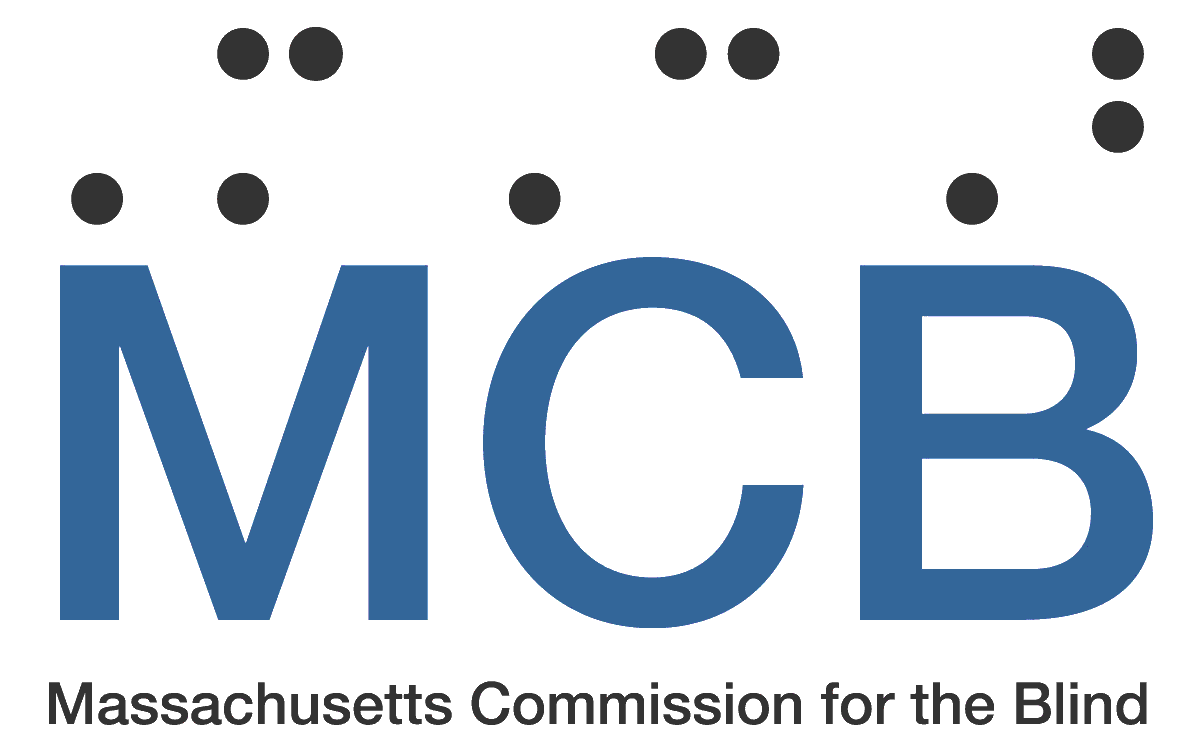- Massachusetts Commission for the Blind

Patricia (Pat) Regan of Arlington was declared legally blind at the age of 20. The cause was optic atrophy, a condition which affects the optic nerves that carry impulses from the eyes to the brain and may result in glaucoma and other forms of vision loss. In Pat’s case, the condition was hereditary.
In 1998, Pat joined a vision-loss support group at the Boston Public Library, organized by the Massachusetts Association of the Blind and Visually Impaired (MABVI). Pat hoped that the group might help her prepare for and find work as she looked to reenter the workforce after years spent raising her children at home. As a member of the support group, Pat sought out advice, networking, and encouragement from peers who were also blind and visually impaired.
The support group leader suggested Pat volunteer with local organizations to gain real-world career skills and experiences, so Pat began to volunteer with the AIDS Action Committee and also taught English as a Second Language (ESL) classes at the Boston Public Library.
Pat continued to volunteer while she achieved her master’s degree in social work from Simmons University. To complete her coursework and school assignments, Pat taught herself how to use JAWS screen reader technology. After graduation, Pat worked for AIDS Action as a mental health counselor for eight years.
One day, while at a work event, Pat met a Massachusetts Commission for the Blind (MCB) employee who suggested she apply for open positions at MCB. Pat was hired and was able to use the skills she acquired in graduate school and as a mental health counselor to transition to her new role of working with seniors across the Commonwealth who are blind and visually impaired.
“Pat is a dedicated person who cares deeply for the people she serves,” said MCB Deputy Commissioner John Oliveira. “She is known for her humor which is appreciated by her colleagues and the community.”
Pat says that interacting directly with seniors who are newly blind and visually impaired is her favorite part of the job; she finds seniors to be “full of life.”
“I always enjoy the contact with clients the most,” said Pat. “If it’s a new person, they’re nervous about meeting a social worker, so I acknowledge my own vision loss and they say, ‘You understand what I am going through, so it’s okay’.”
“I have seen and heard Pat in action when working with our older blind consumers,” said Karen Hatcher, Director of the Older Blind Program (OIB) program at MCB. “Pat listens first to learn all about them and their challenges prior to providing services.
“Everybody is a bit different,” explained Pat, who customizes her approach for every individual she serves to connect them to the programs and resources that will help the most. “I try to get them to talk about their vision loss first and feel understood. A sense of humor often works too, so I try to get them to laugh.”
“Quite a few people cry because their vision loss hits them so hard and it’s hard to regroup after that to get them to feel hopeful. We just figure out where they are and adjust accordingly.”
“It is a joy to spend time and work with seniors,” said Pat. “Most seniors who have been recently diagnosed are fearful and anxious about going blind and losing their ability to manage their lives. One important part of the work is to let them talk about their experiences of vision loss. We give them tools and services that give them hope and let them know that they are not alone."
Listen to an audio reading of this story provided by our partners at the Audible Local Ledger, part of the Massachusetts Audio Information Network - your MAIN source for accessible Community News and Information: http://www.audiblelocalledger.org/mcbinfo.html.
